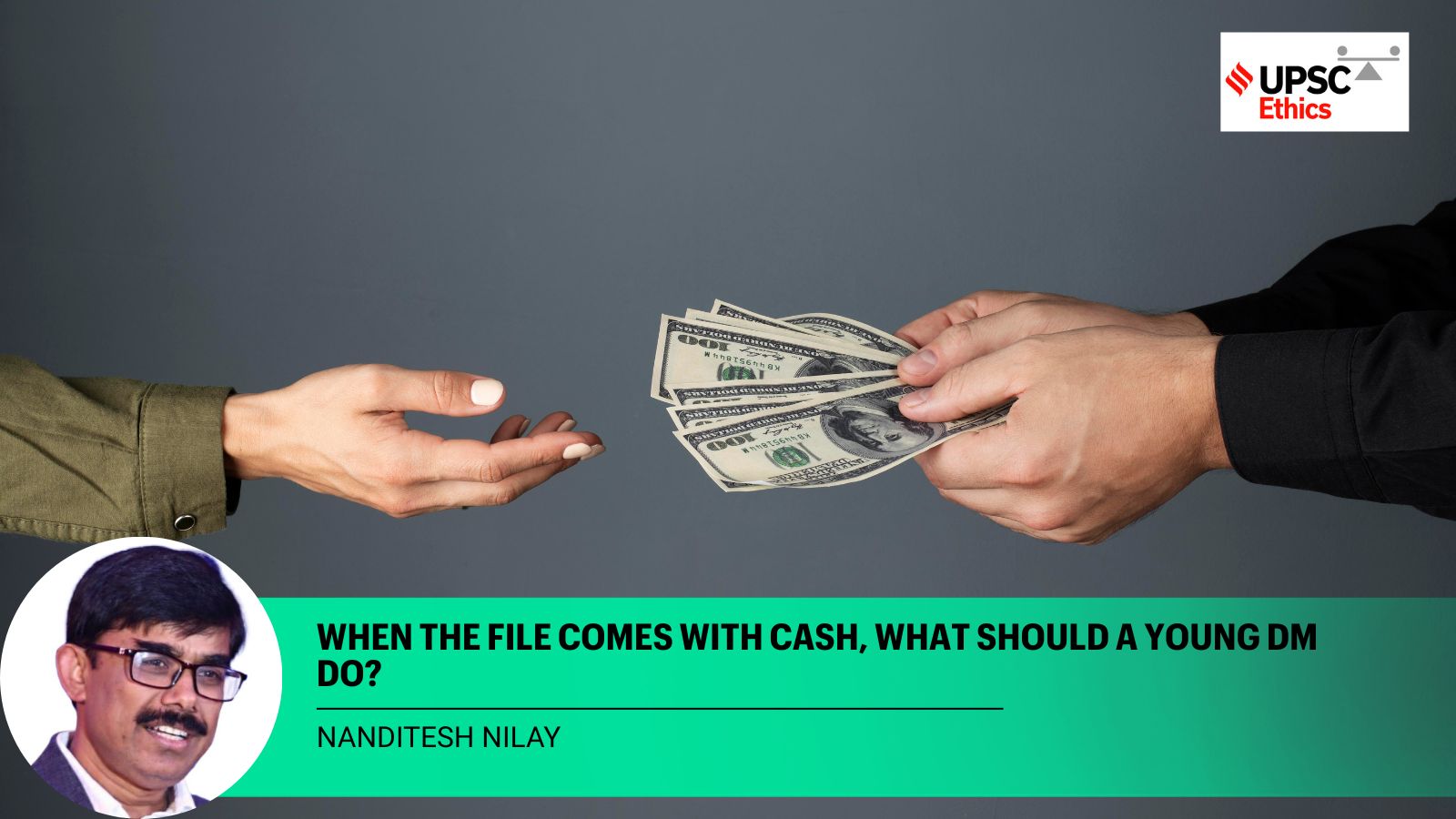© IE Online Media Services Pvt Ltd
Latest Comment
Post Comment
Read Comments
 "Civil services are often seen as centers of power. But we must remember: power and ethics have something in common." (Representational image: Freepik)
"Civil services are often seen as centers of power. But we must remember: power and ethics have something in common." (Representational image: Freepik)Often, we read news headlines about young civil servants — those who worked tirelessly to qualify for the services — being accused of corruption. The tempting nature of power needs to be addressed across all professions in general, and in the civil services in particular. UPSC has often framed questions and case studies, directly or indirectly, around this issue. However, what is often seen is that aspirants tend to jump straight to legal frameworks or consequences when answering ethics questions, painting officials in black and white. Nanditesh Nilay, our ethicist, takes us to the core of the issue: temptation.
That was his first assignment as District Collector. It began with a case where a senior health department officer came to meet the newly appointed DM. The officer requested a meeting at the DM’s residence, citing personal issues that couldn’t be discussed in the office. The DM agreed. After sharing a few concerns, the officer left — but also left behind some money in a file, apparently related to a case awaiting approval.
The DM acted swiftly and decided to file an FIR against him. Some colleagues felt this was too extreme. Nevertheless, the FIR was filed, the officer was arrested, and eventually terminated from service.
Many, however, believed the DM had acted naively. The issue was systemic, and he should have simply returned the money with a stern warning.
When we examine recent instances of corruption, it becomes clear how deeply troubling they are for young professionals. They see young bureaucrats faltering under the weight of temptation. Often, the average citizen can clearly tell what should and shouldn’t be done — by officials in public life and by individuals in private. A list of “shoulds” may include ideals and ethical absolutes; the “should nots” must include all forms of unethical behavior—especially those temptations that erode integrity.
The Oxford English Dictionary defines temptation as “the action of tempting or fact of being tempted, especially to evil.” In this case, the officer tempted the DM, who chose not to succumb. Temptation carries both active and passive forms, and both involve a kind of moral distancing—a loss of wisdom, a separation from reason. A dinner party, a drink, or a gift may start innocently—just a cup of coffee—but can easily end in compromise.
Paul M. Hughes, in ‘The Logic of Temptation’, writes:
“Temptation is normally thought to be morally dubious, in part because it involves desiring what we think is immoral, imprudent, illegal, unaesthetic, or in some other way wrong or bad.”
Bribery is especially dangerous because it persuades and seduces, regardless of the risk of being caught. That’s why it’s essential to recognize subtle temptations in one’s habits, lifestyle, and desires. These seemingly small indulgences can undermine both the efficiency and the moral clarity of a public servant. The principles of Asteya (non-stealing) and Aparigraha (non-possessiveness) remind us of the need for self-awareness and restraint.
A mind that yields to temptation loses sight of the corrosive nature of greed and power—vices that often appear harmless or even colorless on the surface. Temptation which leads to corruption begins with a gift and ends with a compromise.
Civil services are often seen as centers of power. But we must remember: power and ethics have something in common—they both deeply influence our actions. Ethics can help rein in temptation, while unchecked power can act like a wild horse. Power naturally stirs desire, both noble and base.
Temptation can only be managed wisely through conscious habits and a regular reflection on the purpose of power. As Plato said, the idea of power is inseparable from “the good,” and the true measure of a person lies in what they do with that power.
It is important to develop a strong ethical foundation and maintain clear personal boundaries. Along with practicing transparency and accountability, surround yourself with honest people — and most importantly, reflect regularly on your role, purpose, and the power that this service entrusts to you.
Temptations that lead to corruption, if not overcome, become habits — and habits define the soul of governance. Let those habits be guided by integrity, not indulgence.
“The accomplice to the crime of corruption is often our own silence.” Do you agree?
(The writer is the author of ‘Being Good’, ‘Aaiye, Insaan Banaen’, ‘Kyon’ and ‘Ethikos: Stories Searching Happiness’. He teaches courses on and offers training in ethics, values and behaviour. He has been the expert/consultant to UPSC, SAARC countries, Civil services Academy, National Centre for Good Governance, Central Bureau of Investigation (CBI), Competition Commission of India (CCI), etc. He has PhD in two disciplines and has been a Doctoral Fellow in Gandhian Studies from ICSSR. His second PhD is from IIT Delhi on Ethical Decision Making among Indian Bureaucrats. He writes for the UPSC Ethics Simplified (concepts and caselets) fortnightly.)
🚨 Anniversary Special: Read the UPSC Essentials September 2025 special edition, celebrating two years of the magazine! 🚨
Subscribe to our UPSC newsletter and stay updated with the news cues from the past week.
Stay updated with the latest UPSC articles by joining our Telegram channel – Indian Express UPSC Hub, and follow us on UPSC section of The Indian Express on Instagram and X.
For your queries and suggestions write at manas.srivastava@indianexpress.com.

Read UPSC Magazine